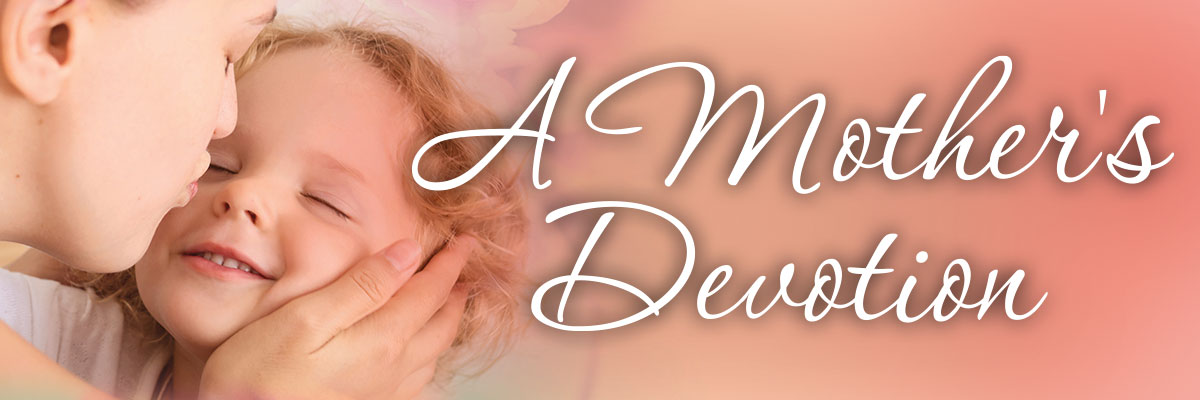Forgive and you shall be forgiven.
-Jesus (Luke 6:37b)
As I prayed with a confused, tired young mother of two, she tearfully told me her tragic story and sobbed, "After all he has done to me, said to me, and the way he has treated me, I could never forgive him." Agreeing with her in my spirit, I had to take a deep breath and get control of how I felt toward her husband too.
Your child is dishonest to you. A friend betrays you. Your boss disrespects you in front of other co-workers. Your man lied; even cheated, breaking the trust you worked so hard to build. The result is often burning anger, resentment, fear, or a pillow drenched in tears night after night. You can feel sick to the stomach as the frustration, stubbornness, and bitterness from being hurt well up inside.
For some, the hurt and personal violation by others cuts so deeply into their being that they face a barrage of unpredictable emotions which they've never felt before. Others become numb and emotionless. If we aren't careful, the pain and anger will give way to resentment and bitterness, becoming a corrosive cancer and eventually destroying us if we won't let go and forgive.
For individuals and relationships to be healthy, forgiveness is essential.
Why? Because forgiveness is always our responsibility. Reconciliation (which is often confused with forgiveness) takes two, the offended and the offender, and it may or may not happen. In cases of abuse and violence, putting things back the way they were may not be safe or prudent. Noted forgiveness research expert Dr. Everett Worthington helps us further understand: "The way of forgiveness is hard. Forgiveness isn't for wimps and wusses. In many ways, the destructive power of unforgiveness is much easier than the tough, steely pull of forgiveness."1
Jesus taught us a lot about forgiveness through the life of Peter. When Jesus was on trial, Peter waited outside, cold and damp. The young girl attending the door invited him inside to get warm and asked, "Aren't you a disciple?" He said no.
Later, as he stood around the fire getting warm, one of the men he was standing with asked, "You aren't one of his disciples, are you?" Again, he said no.
Finally a man warming beside him challenged him even more, "Didn't I see you in the garden with him?" For the third and final time he denied it.
Imagine what Peter felt as he watched Jesus die on the cross at Calvary knowing he had betrayed the Messiah. Or what Jesus felt knowing one of His own disciples denied Him at the same time the rest of the world was against Him. Yet Jesus, raised from the dead, came to Peter and forgave him.
Jesus challenges us to do the same with those who hurt us in our lives. He says, "And if he should sin against you seven times a day and seven times in a day should return to you saying, 'I repent,' you shall forgive him" (Luke 17:4).
Why must we forgive?
First, because we're called to it. True biblical forgiveness involves applying the grace and forgiveness we receive from Christ to those who've hurt us. For relationships to succeed, they must be built on the capacity to forgive. Healthy relationships know it well.
Second, forgiveness frees both the unforgiven and the unforgiving (Matthew 6:14-15; 18:32-33; Ephesians 4:31-32; Colossians 3:12-13). Though trust and confidence may take time, when we genuinely seek out and act upon forgiveness, we allow for healing and provide the foundation for reconciliation in the relationship. Just as our Father gives freely (1 John 1:9), we should too.
I often hear women say, "Julie, if I forgive him, I'm just excusing his behavior." Don’t get me wrong: Forgiveness never excuses or tolerates continued sinful or cruel behaviors. Neither does it mean turning your head and ignoring the offense. Rather, by extending forgiveness, you choose not to keep score, get even, or evaluate the sincerity of the request.
When you forgive, you grow in love. You build trust. And you create opportunities for healing and intimacy.
Healthy relationships demand forgiveness. The why may seem easy to understand; the how part is what we have trouble figuring out.
Dr. Everett Worthington has laid out a pyramid, mapping the process of forgiveness. I will briefly outline it here. (For a more detailed look into the process, I encourage you to look for his book Five Steps to Forgiveness: The Art and Science of Forgiving.)
The first step to forgiveness is recalling the hurt rather than denying anything ever happened. (By the way, denial is sometimes the easier thing to do.) This doesn't mean you dwell on being a victim or blame and badger the one who hurt you. It just simply means you recognize that you were wronged.
Once you name the hurt done to you, it's important to empathize with the one who hurt you. This is difficult, but try to put yourself in his or her shoes. This helps you understand the human condition and the stressors on the other person that may have led him or her to hurt you in the first place. Imagine Jesus trying to understand why Peter betrayed Him and the pressure Peter was feeling at the time.
As you begin to identify with the transgressor, offer the altruistic gift of forgiveness. As Worthington writes, "Have you ever harmed or offended a friend, parent, or partner who later forgave you? Think about your guilt. Then consider the way you felt when you were forgiven. When you think long and hard about this, you might be willing to be selfless and give the gift of forgiveness to those who have hurt you."2
Once you've forgiven the transgressor, tell him or her. When you do, you are less likely to question your certainty later.
Finally, hold on to the forgiveness. When uncertainty arises, find ways to prevent the anger, bitterness, and resentment from settling in again (Hebrews 12:15). Accepting a sincere apology means that you will not continuously bring up past behavior and demand multiple apologies. Honor yourself, your relationships, and those you love by attempting to put forgiven behaviors behind you while resolving to build a stronger future for the relationship.
Forgiveness involves setting aside the offense so that it won't be used as a weapon against the other person. At the heart, forgiveness is about grace. When God forgives us, He sets aside our punishment. He is the source of our forgiveness (Ephesians 4:32). Because He forgives, we can forgive.
1. Everett Worthington, Five Steps to Forgiveness (New York: Crown Publishing, 2001), 18.
2Ibid., 39.
2. Ibid.












